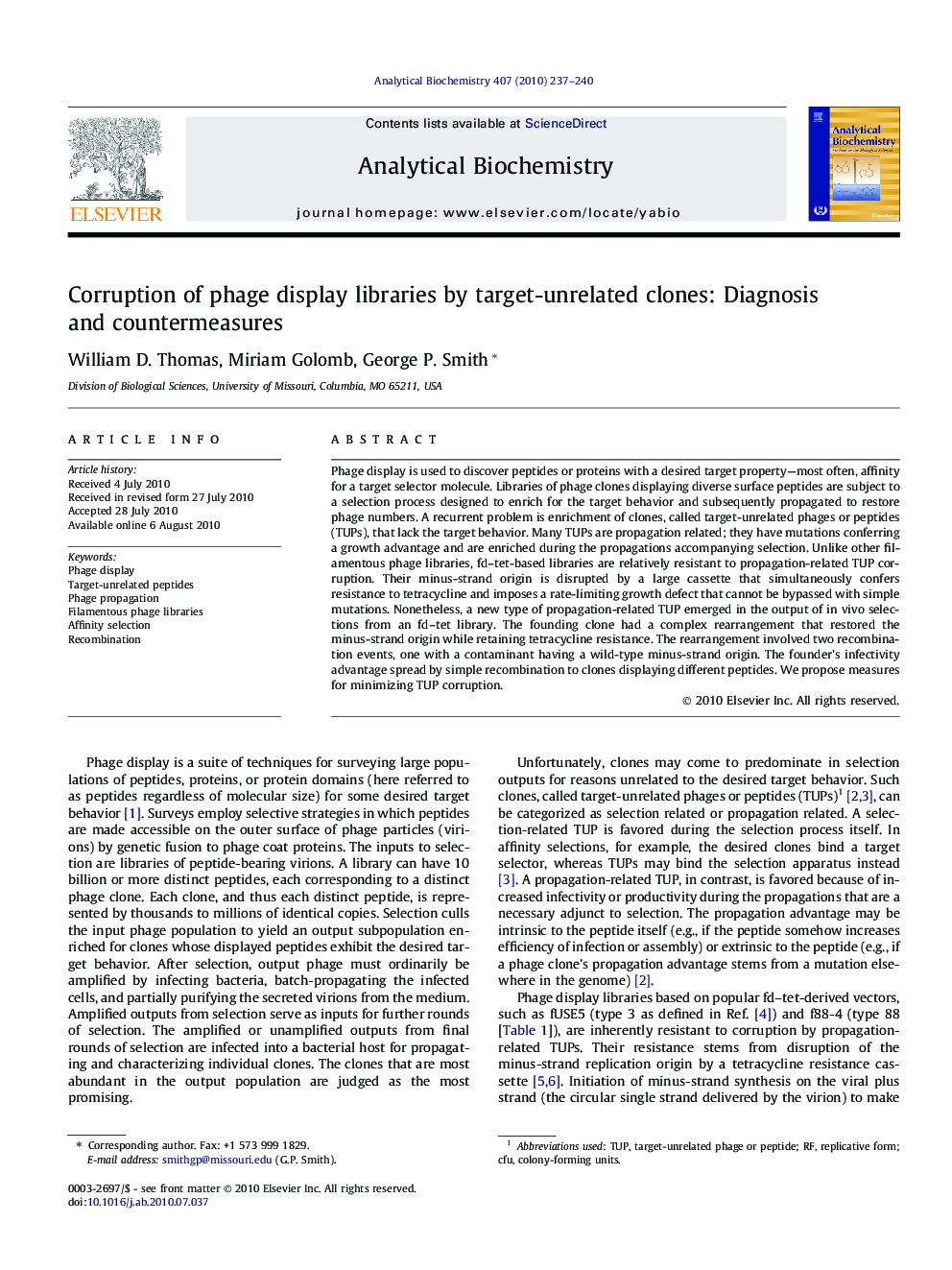| Article ID | Journal | Published Year | Pages | File Type |
|---|---|---|---|---|
| 1174341 | Analytical Biochemistry | 2010 | 4 Pages |
Phage display is used to discover peptides or proteins with a desired target property—most often, affinity for a target selector molecule. Libraries of phage clones displaying diverse surface peptides are subject to a selection process designed to enrich for the target behavior and subsequently propagated to restore phage numbers. A recurrent problem is enrichment of clones, called target-unrelated phages or peptides (TUPs), that lack the target behavior. Many TUPs are propagation related; they have mutations conferring a growth advantage and are enriched during the propagations accompanying selection. Unlike other filamentous phage libraries, fd–tet-based libraries are relatively resistant to propagation-related TUP corruption. Their minus-strand origin is disrupted by a large cassette that simultaneously confers resistance to tetracycline and imposes a rate-limiting growth defect that cannot be bypassed with simple mutations. Nonetheless, a new type of propagation-related TUP emerged in the output of in vivo selections from an fd–tet library. The founding clone had a complex rearrangement that restored the minus-strand origin while retaining tetracycline resistance. The rearrangement involved two recombination events, one with a contaminant having a wild-type minus-strand origin. The founder’s infectivity advantage spread by simple recombination to clones displaying different peptides. We propose measures for minimizing TUP corruption.
